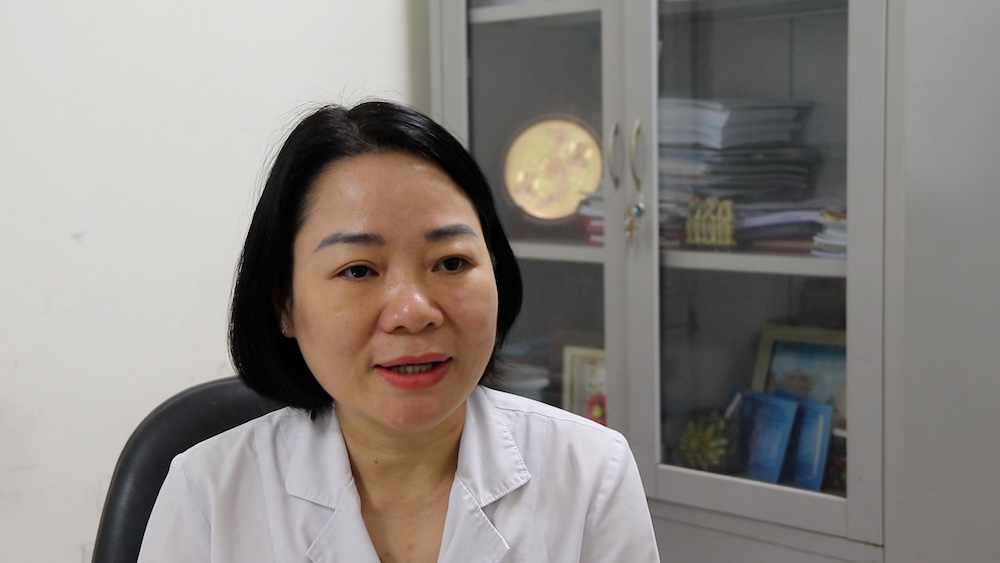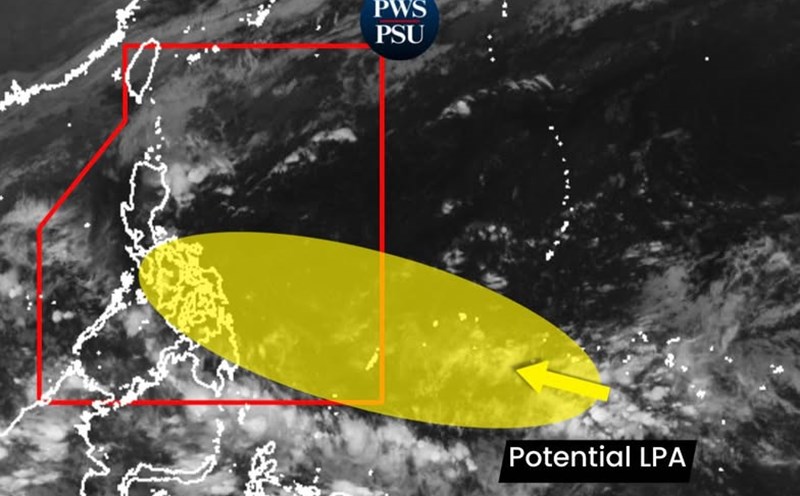Respiratory patients increase by 20 - 30%
According to statistics from the World Health Organization (WHO), there are about 1 billion seasonal flu infections worldwide each year, causing from 290,000 to 650,000 deaths. In Vietnam, the situation is also very worrying as the number of cases of acute respiratory infections has always remained high, ranging from 300,000 to 500,000 cases per year.
In early November, when the first cold air waves arrived, major hospitals began to record a surge in respiratory patients. Recorded at end-of-line hospitals, the number of patients coming for examination for influenza and pneumonia has increased by 20-30% compared to the previous month. The waiting rooms are always crowded, mostly with the elderly and children.
Speaking to reporters, Dr. Nguyen Thi Huyen - Deputy Head of the Examination Department, Central Lung Hospital said that the number of patients coming to the hospital for examination and treatment has increased significantly.
Especially the group of respiratory diseases such as bronchitis, chronic obstructive pulmonary disease (COPD), bronchitis, pneumonia. We also see an increase in the number of patients with viral pneumonia combined with bacteria, many cases are hospitalized in relatively severe conditions, Dr. Huyen shared.

According to Dr. Huyen, the most vulnerable group when the weather turns cold is the elderly (over 65 years old), people with underlying diseases such as cardiovascular disease, diabetes and children under 2 years old due to incomplete resistance. These are groups at high risk of dangerous complications if not detected and treated promptly.
Should get vaccinated against influenza every year
Prolonged cold and rainy weather creates ideal conditions for the influenza virus to develop and spread rapidly in the community. However, many people are still subjective and self-treat at home when they have initial symptoms such as cough and fever. This habit has a great risk, easily causing the disease to progress severely, causing dangerous complications such as pneumonia and respiratory failure, especially in children who have not been fully vaccinated against influenza.
To proactively protect health, experts recommend effective and most important precautions, such as vaccination. Doctor Tran Thi Thuy Duong - Head of the Department of Medicine of VNVC Truong Chinh (Hanoi) said that Vietnam currently has new generation four-vehicle flu vaccines, capable of preventing two strains of influenza A (H1N1, H3N2) and two strains of influenza B.
Explaining the need to re-sharpen the influenza vaccine every year, Dr. Duong said there are two main reasons.
Firstly, because the influenza virus's resistance structure changes continuously over the years, the vaccine is also updated to suit the current virus strain. Second, over time, the amount of protective antibodies created by vaccines in the body will gradually decrease, Dr. Duong analyzed.
Therefore, doctors recommend that people, especially high-risk groups, proactively get vaccinated against influenza according to schedule and with enough doses. When there are unusual signs of health, it is necessary to go to a medical facility immediately for examination and consultation, avoiding self-treatment at home can lead to unfortunate consequences. Proactive disease prevention not only protects oneself but also contributes to reducing the burden on the health system during the year-end epidemic season.











